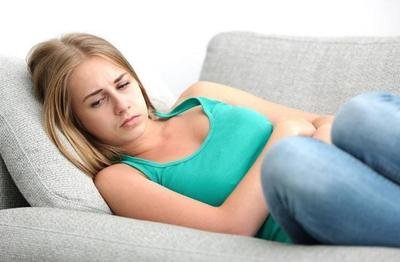Does Hydrosalpinx Affect Egg Quality?
Many women panic when they see "hydrosalpinx" on the medical checklist, worrying that the quality of their eggs will decrease. Hydrosalpinx generally does not affect the quality of eggs because hydrosalpinx is caused by inflammation of the fallopian tubes. The ovaries cause ovulation, and if the ovaries function normally, ovulation can occur.

However, this does not mean that hydrosalpinx is a small problem. On the contrary, we still need to pay special attention to it because hydrosalpinx can affect pregnancy. Next, let's take a closer look at what is hydrosalpinx.
What are Fallopian Tubes?
The fallopian tube is a thin tube in the female body, which is hollow inside and used to provide a path for the egg, and it is the only path, so it is essential to fertility. If only a tiny amount of fluid is in the fallopian tube, and the female's eggs can still pass, it will not affect the pregnancy. If the fluid in the fallopian tube keeps increasing and not decreasing, then you should pay attention. If the fluid overflows the fallopian tube, it will enter your ovaries and uterus, causing significant problems and even causing the ovaries to no longer ovulate.
What Amount of Hydrosalpinx Should be Considered Serious?
In general, B-ultrasound can be used to judge the amount of hydrosalpinx. It is not very serious if the fluid is 1-2 cm. If the fluid is 2-3 cm, it is more serious. Of course, the doctor can not judge the severity of hydrosalpinx by the amount alone. They should also consider the clinical symptoms of the patient.
Regardless of the fluid in the fallopian tube, hydrosalpinx is always considered a severe inflammation of gynecology. It is necessary to identify the cause, such as tubal blockage carefully. If the treatment is not timely, it is likely to lead to long-term infertility and reduce the success rate of IVF. Standard treatment options include topical antibiotics. If there is a need for fertility, surgery can be selected.
What Are The Common Causes Of Hydrosalpinx?
The leading cause is that after the pelvic inflammatory disease subsides, the damaged fallopian tubes are blocked, filled with sterile fluid, and thickened; tubal damage caused by previous surgery or adhesions can also lead to hydrosalpinx.
Who is at Higher Risk of Getting Hydrosalpinx?
Hydrosalpinx is mainly a long-term complication of pelvic inflammatory disease, and it is more common at reproductive age (i.e., when sexual life is more active). In addition, being younger than 25 years, having a sexual partner with a sexually transmitted disease, having multiple sexual partners, and having a history of pelvic inflammatory disease or a sexually transmitted disease were all critical risk factors.
How is Hydrosalpinx Treated?
If the patients have chronic pelvic pain and have no fertility requirements, antibiotic therapy is preferred, and surgery is recommended if there is no relief. If pregnancy is desired, surgery is the first choice.
Knowing so much about hydrosalpinx, you can deal with this disease calmly. Women with hydrosalpinx need to seek medical attention in time so that it will not affect their future life.
Hydrosalpinx is preventable, and you need to pay attention to safe sex, and adhere to the correct use of condoms. And if you have vaginitis, cervicitis, pelvic inflammatory disease, and appendicitis, you need to take treatment so that it will not cause hydrosalpinx actively.
Recommended Readings:
Fallopian Tube Blocked? Find out What's Going On?
previous pageIs Foot Soaking Good for Blocked Fallopian Tubes?
next page
You may also be interested in
- Hydrosalpinx and IVF: What Are the Chances of Successful Embryo Implantation?
- Is Hysterosalpingography Harmful to the Body?
- Can Hydrosalpinx Be Thoroughly Drained by Aspiration Surgery?
- Pay Special Attention to These Hydrosalpinx Symptoms!
- Hydrosalpinx: Frequent Checks and Excessive Anxiety Affect Pregnancy!
Testimonials
- Adenomyosis with Ureaplasma Urealyticum Cured by Fuyan Pill
- Tubal blockage with hydrosalpinx can be cured by TCM shortly
- Fuyan Pill Helps A woman with Adenomyosis Get Pregnant
- A Woman with Hydrosalpinx Is Cured with Fuyan pill
- Pelvic Inflammatory Disease Testimonials
- Irregular Vaginal Bleeding and Endometrial Thickening Cured by Fuyan Pill
- Pruritus Vulvae and Frequent Urination: Mycoplasma Infection Cured after 2 Courses



